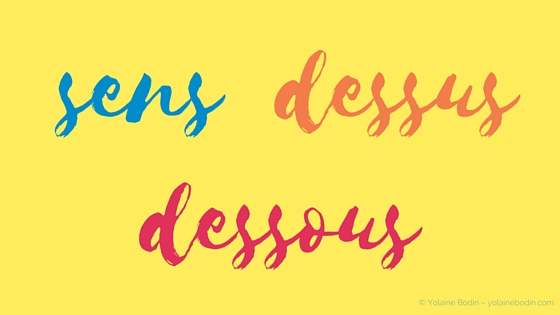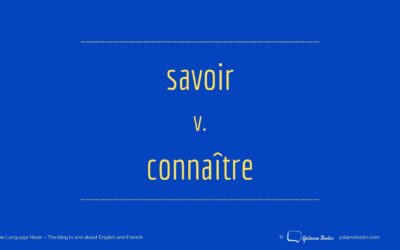Sens dessus dessous is a French set phrase that you can use when you want to say that something or someone is upside down, upset or in a great state of confusion.
It is commonly used both in a literal and figurative sense:
- Nous sommes rentrés dans la pièce : tout y était sens dessus dessous. (We entered the room: everything was in a big mess / everything had been turned upside down)
- C’était une catastrophe qui avait mis sa vie sens dessus dessous (It was a disaster that turned his life upside down)
Note that the final S in the word sens is usually always pronounced, but not in this very expression. It is clearly an exception… What is not a exception though is the fact that you should never pronounce the final S in dessus and in dessous 😉
There you are! Now you know what the French phrase sens dessus dessous means. Try and use it next time you have the opportunity to speak French! 🙂





It is ‘sAns dessous dessous’ with an A
Thank you for your comment Jean.
I actually explained the fact that it is spelt with an e rather than an a in the French version of this post. For the English version, I thought the most important was to explain what it means. Your comment makes me realise that probably wasn’t my best choice so I’ll probably need to update the English page to better reflect the content of the French page.
If you can read French, I suggest to click on the French flag at the top of the page to read more about it.
In the meantime though, I can summarise that the phrase sens dessus dessous contains the word sens referring to the direction or orientation of something, not the fact that something is lacking or missing as the word sans (=without) would imply. I know the distinction between “sens” and “sans” in French can be confusing because they sound similar. I hope this sheds a light on why it is spelt sens with an e.